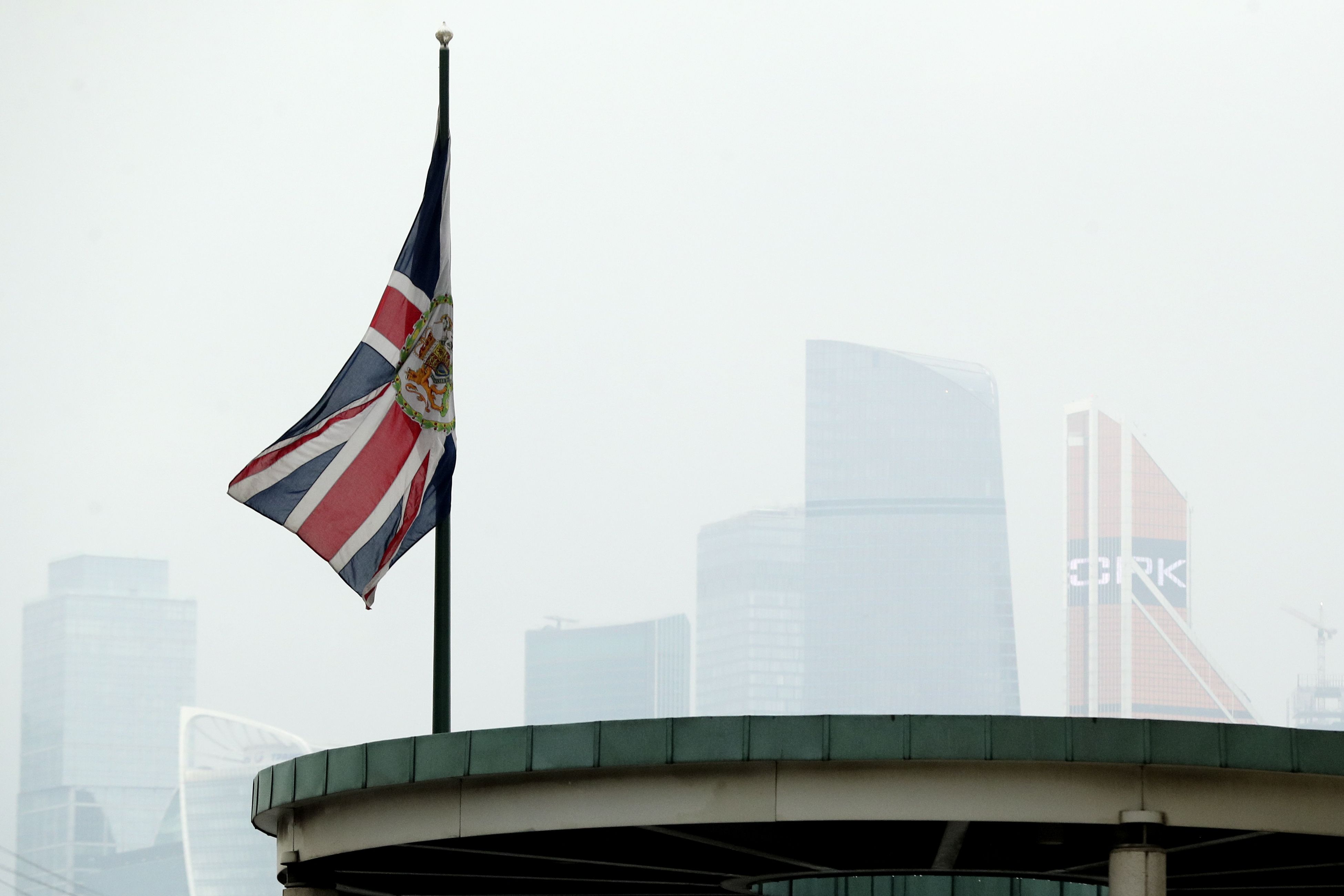UK Policy towards Russia

The use by Russian secret services of the chemical agent Novichok during the attempted murder of Sergei Skripal on British territory in 2018 significantly worsened the condition of relations between Russia and the UK, and limited official contacts. On 17 November 2020, Wendy Morton, the Minister for European Neighbourhood, met Russian Deputy Minister of Foreign Affairs Vladimir Titov in Moscow, which was the first visit of this rank in two years. The talks concerned current international issues such as the conflicts in eastern Ukraine and Nagorno-Karabakh, and the Iranian nuclear programme, as well as bilateral relations, mainly economic. Climate change issues were raised (the UK will host the COP26 climate summit this year). Minister Morton also spoke to human rights activists. In view of numerous points of contention, the topic of the normalisation in relations between the UK and Russia was not addressed. Due to its working nature, the visit should be treated as part of a limited dialogue between states.
The Russian Threat
The perception of the Russian threat to the UK was largely influenced by a special report by The Intelligence and Security Committee of Parliament (ISC), commissioned in 2017 (work became a priority following the poisoning of Skripal). The conclusions were so critical of the ruling Conservative Party that publication was suspended before the parliamentary election in December 2018. The report was released in July 2020, more than a year after it had been finished.
The report clearly identifies Russia as a serious threat not only to the UK, but also to the West as a whole. It describes Russian social and business influence as the “new normal” and identifies the UK as one of Russia’s main intelligence targets (alongside the U.S. and the UN). The document contains a comprehensive analysis of Russian actions aimed at influencing British politics, including campaigns ahead of the Scottish independence and Brexit referendums. The Russian way of operating was similar in both cases. Attempts were made to influence the election process through a disinformation campaign in the media and on social networks, for example by using trolls or bots. In 2014, Russian actions undermined, among other things, correct vote counting, and in 2016 they promoted negative opinions about the EU. However, much of the information in the document remains classified, including the Brexit annex. The report also points to other threats from Russia, such as espionage (including cyber-attacks) and money laundering (mainly related to the investments of Russian oligarchs in the UK).
The report points out British negligence, noting that the UK had taken no preventive or explanatory actions even two years after concerns about Russian activity had been reported in 2014. Nevertheless, in connection with the growing cyber-threats and the use of information warfare techniques by Russia, the UK established the National Cyber Security Centre in 2016, followed April 2020 by the National Cyber Force, with offensive capabilities. In November 2020, Prime Minister Boris Johnson also declared a record increase in the defence budget by £16.5 billion over the next four years (in terms of spending, the UK will rank first in Europe and second in NATO, after the U.S.). According to the announcements, a large part of the funds will be allocated to the cyber and space spheres. Their actual distribution, however, will be verified by the Integrated Review of Security, Defence, Foreign Policy and Development, the results of which will be published this year.
The State of Relations between the UK and Russia
The UK takes a tough stance against Russian violations of international law and human rights. It is pushing for an end to Russian aggression in Ukraine, and is in favour of an international investigation into the poisoning of Alexei Navalny (the same chemical agent was used as against Skripal). The UK actively supported the Belarusian opposition. It will allocate, for example, £1.5 million in the next two years to projects supporting independent media, human rights organisations and social groups in Belarus, including a joint Polish-British programme promoting independent media to counter disinformation. In recent months, British services have also alerted that Russian hackers (most likely commissioned by the Russian intelligence service GRU) were attacking centres conducting research on the COVID-19 vaccine.
Nevertheless, the British system remains open to the activities of Russian oligarchs. Many of them have dual citizenship, and their influence is visible in investments in British business and political party financing, among others. The lack of control by the British authorities of financial flows from illegal sources led to the creation of the “London laundromat”. Many important British politicians also maintain close ties with Russians whose connections to Russian Federation authorities are unclear. This is confirmed by, for example, contributions from Lyubov Chernukhin to the Conservative Party, with the money most likely coming from the oligarch Suleiman Kerimov, linked to Vladimir Putin. Moreover, in November 2020, the Moscow-born businessman Evgeny Lebedev was nominated as a member of the House of Lords (he owes this to his close contacts with Boris Johnson), which strengthened his lobbying capacity.
The most important global problems, such as combating terrorism and preventing climate change, remain a potential area of cooperation between Russia and the UK. Regional issues concerning, for example, the Eastern Mediterranean, Iran, Afghanistan and Asia (North Korea), mainly related to security interests, also create limited opportunities for cooperation. The British authorities see Russia’s involvement as part of their resolution, maintaining the necessary communication channels.
Prospects
The perception of Russia in the UK is burdened by the former’s use of the chemical agent Novichok on British territory in 2018, and there is no indication that the relations between the two states might improve significantly in the near future. The overwhelming majority of members of the ruling Conservative Party and the opposition Labour Party are in favour of maintaining the UK’s current strict position. In the long term, British policy will focus on combating Russian threats concerning disinformation and the digital sphere. The UK will also insist on a firm stance towards Russia and strong repercussions for its interference in the policy of Western states. The British criticise, for example, France, which did not condemn Russia for influencing the presidential election of 2017.
In line with the global strategy to be launched in order to set a political course after Brexit, the UK has announced that it will establish closer cooperation with areas outside Europe (such as Asia and Africa). However, this is unlikely to lead to an improvement in British relations with Russia. It gives an important signal for the states of NATO’s Eastern Flank, which look with concern at the conciliatory attitude of some European states (such as France and Germany) towards Russia. However, the state of the budget after Brexit and the pandemic crisis, as well as growing separatist tendencies in the UK (mainly in Scotland), may have serious consequences for military involvement. In the face of common threats from Russia, it is worthwhile for Poland to engage in the development of channels of multilateral cooperation between the UK and Europe, for example as part of NATO intelligence cooperation, and to activate the 2018 Treaty on Defence and Security Cooperation.
In the longer term, UK and EU policies towards Russia and Eastern Europe may diverge. This was demonstrated, for example, by the issue of imposing sanctions on representatives of the Belarusian regime after the August election. The UK adopted a wait-and-see position, counting on coordination with the EU. However, due to the prolonged EU negotiations, the UK decided to impose sanctions on the Belarusian authorities independently. In the face of the pandemic crisis, some European states (such as Italy) may also be inclined to establish closer economic cooperation with Russia. However, any possible change in the position of Germany and France towards Russia after Navalny’s poisoning and the presidency of Joe Biden create potential for cooperation.


